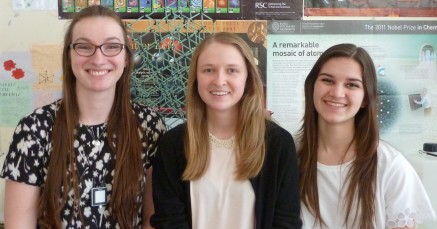Blog post
Involving children in research: “What we think about what adults think”

Guest post by Natasha Wilcock, Rosie Bradford and Ellis Richardson who participated in a workshop held by the Council at Varndean College, Brighton
What it was like to take part in this project, why we were there and what the researchers can learn from us
Recently seven students from Varndean College, Brighton (along with others from local primary and secondary schools) took part in a workshop regarding the involvement of children in clinical research. This was for the Nuffield Council on Bioethics in collaboration with their colleagues from Universities of London, Nottingham and Sussex. During the workshop we discussed our opinions on a proposed treatment for children with severe asthma and about how to conduct research involving children and young people.
Most of us who took part are interested in pursuing careers in the biomedical sciences so being given the opportunity to develop our knowledge of such a highly charged ethical issue was invaluable. As well as learning about research ethics, having to critique the work of an acclaimed professor as seventeen year olds with no letters after our names was daunting! But our suggestions were (hopefully) insightful and personally showed that even the most qualified person benefits from a young person’s fresh perspective.
The aim of this project was clear: to find out “What we think about what adults think”. It made sense therefore when the researchers came to hear our opinions! But in so many areas our opinions are just inferred from adults’. So as clear differences arose between our views and those of the adult research ethics committee, it is obvious that young people’s views should be sourced directly and entirely respected. Involvement in a clinical trial can truly change a child’s life, it may affect the family, but it is the child who will live with the consequences, therefore their opinion should be highly valued.
After watching the final film of the workshops we were surprised to see general agreement across the board. Especially regarding possible incentives we found it remarkable that across all the ages there was a clear consensus- participation in the trial should come only from the “goodness of your own heart” not for the suggested measly £20 Amazon voucher (personally we wouldn’t be persuaded to do anything for a few second hand books). But the fact that the researchers included this suggests they thought we could be persuaded by money. The film showed that young people’s motives are more altruistic than adults’. Maybe we are guided by purer morals, so shouldn’t we be listened to more?
The video above shows highlights from the workshops
The overwhelming recommendation from the video was for all clinical trials involving children to really involve them in a personal way. Researchers must realise that with children and young people there is no “one size fits all” solution. Children, young people and their families are so diverse that there is no way all of their experiences could be appropriate without tailoring aspects of the trial to their personal needs. For example, having a personal conversation with a doctor with the possibility to ask questions instead of just reading a blanket information sheet would ensure assent and consent are truly informed. You must give information to young people and their parents in different ways, everyone knows teenagers and their parents don’t always see eye to eye (putting it mildly) so how could you treat them both in the same way?
The task of ensuring that children’s involvement in clinical research is an interesting yet complex one. But if adult researchers can understand their limitations, knowing that children and young people have strong opinions that we deserve to have heard, then together we can use our relative expertise and insight for the benefit of children and maybe even adults too.
The workshop at Varndean College was held as part of a project aiming to find out how young people see the ethical review process when clinical research is carried out involving children and young people. Find out more.
Comments (0)
Join the conversation